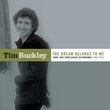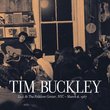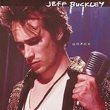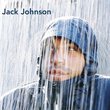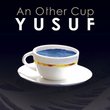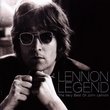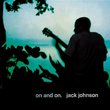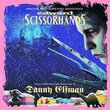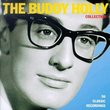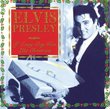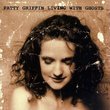| All Artists: Tim Buckley Title: Live At The Troubadour Members Wishing: 3 Total Copies: 0 Label: MANIFESTO RECORDS Original Release Date: 1/1/1969 Re-Release Date: 4/13/2010 Album Type: Live Genres: Folk, Jazz, Pop, Rock Styles: Singer-Songwriters, Folk Rock Number of Discs: 1 SwapaCD Credits: 1 UPC: 767004070520 |
Search - Tim Buckley :: Live At The Troubadour
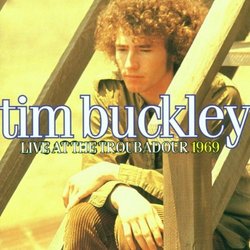 | Tim Buckley Live At The Troubadour Genres: Folk, Jazz, Pop, Rock
First unearthed in 1994, this live recording is from Buckley's 'Happy/Sad' period that has been recognized as his most creative. This live album, recorded at the famous L.A. venue on September 3, 1969, captures Buckley ... more » |
Larger Image |
CD DetailsSynopsis
Album Description First unearthed in 1994, this live recording is from Buckley's 'Happy/Sad' period that has been recognized as his most creative. This live album, recorded at the famous L.A. venue on September 3, 1969, captures Buckley in exceptional form. Liner notes by British writer Martin Aston of Mojo. 9 tracks. Similar CDs
Similarly Requested CDs
|
CD ReviewsI'm only thirteen and I love it all the same! 10/10/1999 (5 out of 5 stars) "I'm 13, I grew up in a 60's music loving family, and I'll always love this C.D.! This Tim Buckley C.D. has such an assortment of rythems, lyrics and feelings in every song. Any persons would be crazy not to love this C.D at first glance, it's a master piece and I love it! (and you should too!) enjoy!" Live Album finally demonstrates the Genius of Buckley SevenSevenSeven | Clinton Township, Michigan United States | 12/01/1999 (5 out of 5 stars) "Finally, Buckley's incredible vocal range is shown in all its exceptional prowess. The stand out track is the astounding "Gypsy Woman" (where Timmy wants the spell cast on him, always the ironic iconoclast) that has Buckley going from a counter tenor to a falsetto to a banshee wail. Simply astounding. If you know nothing about Tim Buckley, this is the album to purchase to get yourself duly informed. A fantastic record of a man before his time." Avante-garde personified running_man | Chesterfield Twp., MI | 01/24/2005 (3 out of 5 stars) "'Tim Buckley - Live At the Troubadour 1969' was recorded on September 3rd and 4th at this intimate folk club (capacity is only 450 seats) in Los Angeles. Buckley brings along with him a stellar group of musicians, in particular guitarist Lee Underwood and percussionist Carter C.C. Collins, to a venue revered for bringing artists nearly face-to-face with their audience since 1957. The Troubadour, in fact, remains open as of the writing of this review, and stands as the oldest music venue in Los Angeles.
You couldn't ask for a better quality recording (especially given that the year was 1969) considering that these tapes had collected dust in the vault for over two decades. You also couldn't ask for more music. A quick visual tabulation pegs the total time on this disc at around 79 minutes, which is about all any CD can handle. The set list and performances, while perhaps good given Buckley's available catalog at the time, may disappoint some fans (such as myself) who prefer Buckley's later, perhaps more accessible work. At this point in his career Buckley was still seeking Top 40 success, an elusive goal despite his release of 10 singles. None of the songs from 'Live At the Troubadour 1969' were among those singles. All nine cuts are drawn from his 1969 'Happy Sad' album (tracks #1 and 5), and his two 1970 releases, 'Blue Afternoon' (tracks #6 and 7), and 'Lorca' (tracks #4, 8, and 9). There are two tracks that never appeared on a Buckley studio album, 'Venice Mating Call', and 'I Don't Need It To Rain', although another live version of the latter does appear on Buckleys 'Once I Was' CD. The version of 'I Don't Need It To Rain' rendered at the Troubadour is a much better recording than the 'Once I Was' version, which to me is unlistenable. With Tim Buckley nearly every musical excursion would have to be considered to be avante-garde. With each track on 'Live At the Troubadour', one wonders where Buckley will be heading next. The songs are an eclectic mix of jazz, folk, blues and rock. He takes his voice in experimental directions few artists would dare (or even think) to venture, and at times traverses outside the boundary of what some might consider melodically tasteful. But there is no denying the range, intensity, and imagination Buckley is able to infuse into his compositions vocally. Lee Underwood offers some smokin' solo's on guitar, and on 'I Don't Need It To Rain' and 'Nobody's Walkin' offers vibes on electric piano. His solo's on 'Strange Feelin', 'Gypsy Woman', and 'Chase the Blues Away' are especially tasty. His guitar has a smooth, rich, velvety feel to it... a fine accompaniment to Buckley's wildly exploring vocals. Carter C.C. Collins' percussion sounds are another sweet attaction, especially on 'Venice Mating Call', and 'Nobody's Walkin', which features a Collins solo on conga. The tempo of the disc is generally slow, and the mood is dark. Only two songs step up the pace beyond mid-tempo, but 'Gypsy Woman' at fourteen and one-half minutes, and 'Nobody's Walkin', at just over sixteen minutes, are easily the longest songs in the set. The second track, the instrumental 'Venice Mating Call', is rather upbeat also. 'I Had a Talk With My Woman' and 'Blue Melody' are perhaps the prettiest songs on the album, while the dirge-like slow blues of 'Driftin' is perhaps the most depressing cut. A rather shocking moment occurs in Buckley's introduction to 'Venice Mating Call' when the artist jokingly tells the audience, "All we are saying is give smack a chance". The off-hand comment draws laughter from the audience, but few would be laughing if they could have known that Buckley would forfeit his life to an accidental overdose of heroin about six years later. It's an unfortunate reminder of the fate that awaited this talented, but tormented artist. Martin Aston supplies informative and insightful liner notes to complement this generous package." |

 Track Listings (9) - Disc #1
Track Listings (9) - Disc #1